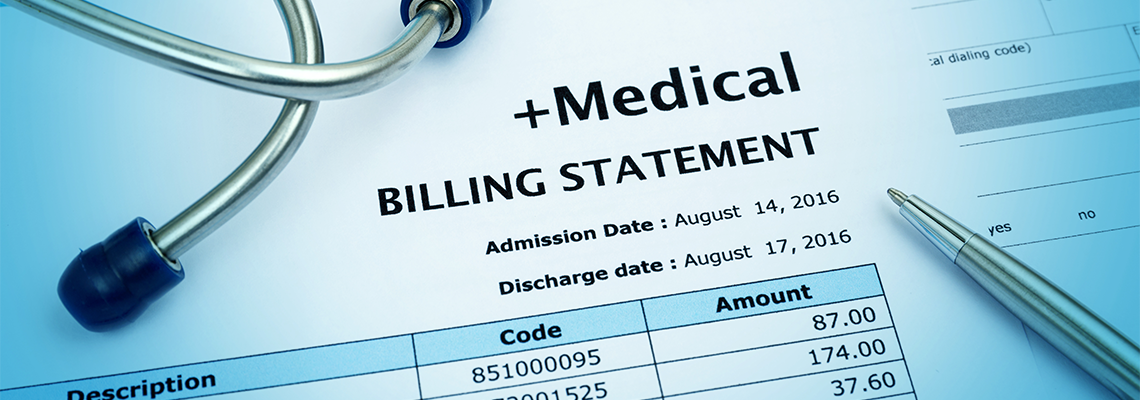
Who Pays My Medical Bills After an Accident?
If you set out on a fine morning to go shopping, travel to work, or venture out to visit friends or family, and you are involved in a car accident because of someone else’s negligence, you have every right to file a claim against that person’s auto insurance or even file a personal injury lawsuit. Colorado’s auto insurance laws are “at-fault,” meaning whoever is most responsible for the accident is liable legally.
Depending on your injuries, however, the claims process can be drawn out while you receive treatment, and the doctors’ bills can pile up and potentially go into collections while you struggle with the at-fault driver’s insurance company for compensation.
If you or a loved one has been injured in an auto accident because of another driver’s negligence or recklessness in or around Aurora or Denver, Colorado, contact us at the Gama Law Firm LLC immediately. We will handle negotiations with the at-fault driver’s insurer or, if necessary, file a personal injury lawsuit. We also serve clients in Parker, Centennial, and Castle Pines.
Colorado Auto Insurance Requirements
As noted above, Colorado is an at-fault auto insurance state, meaning the driver who causes an accident is on the hook for property damage and personal injuries. The state’s minimum requirements for auto insurance are known as 25/50/15. The 25 stands for liability coverage you must carry for injuries to one person, which is $25,000. The 50 is for injuries to all persons involved, or $50,000 and the 15 is for property damage—$15,000.
These limits are low. You can hardly buy a car for $15,000 anymore unless it’s pretty old, and injury costs can run into the tens of thousands. And the other fact is that these provisions don’t cover you or your passengers. They just pay the ones you injure or who suffer property loss such as vehicular damage.
Does Health Insurance Cover Car Accident Bills?
If you are injured in a car accident that is not your fault in Colorado, the other driver (usually through his or her insurance company) is responsible for your medical bills. However, a settlement with the other driver's insurance could take months, or even years, depending on how long your medical treatment takes. Most doctors and other health care providers want to get paid right away, and if they don't, they could send you to collections.
First Choice: Should I Use My Own Health Insurance?
If you have health insurance, Medicare, or Medicaid, you should submit your medical bills to them. Even though the bill gets paid and discounted by health insurance, you are still entitled to collect the original undiscounted billed amount from the at-fault party and their insurance company. So, although your health insurance benefits you by reducing the amount you owe, it does not benefit the at-fault driver by reducing the amount of compensation they owe to you.
Simple Example of How a Medical Bill Gets Taken Care of in a Personal Injury Case in Colorado:
John gets injured in an accident in Colorado caused by someone else.
John has a $1,000 medical bill that he submits to his health insurance company. Instead of owing $1,000, he only owes a $40 co-pay.
John has his own car insurance company reimburse him the $40 out of his "Med Pay" coverage (which does not affect his insurance rates).
John's attorney collects the undiscounted amount ($1,000) from the at-fault driver as part of the settlement.
Instead of having to use $1,000 of his settlement money to pay this medical bill, John keeps it and walks away with more money in his pocket.
Be advised that sometimes the health insurance company has a right to be reimbursed from the settlement. Even this outcome is still much better than not using health insurance. For example...
Let's say the health insurance paid $100 of the $1,000 bill and the rest was adjusted/written-off. So the health insurance company wants to be reimbursed the $100 they paid for this bill. That means that John has to use $100 of his settlement money to reimburse his health insurer (still much better than using $1,000 of his settlement money to pay the bill) OR he can use his Med Pay to pay $100 to his health insurer (even better because nothing comes out of his settlement money).
Another Option: Med Pay
If you have "Medical Payment" coverage (“Med Pay” for short) under your own Colorado car insurance policy, you can also use this to pay your medical bills. However, a better use of these benefits is to reimburse yourself for out-of-pocket costs that health insurance does not cover, such as co-pays or annual deductibles.
What If You Don’t Have Health Insurance or Med Pay?
Liens are bills that are "on hold" and get paid out of the settlement money. Generally, if someone is willing to wait that long to get paid, they are not willing to offer a big discount off their bill. That means that more money has to come out of your settlement to pay for health care providers that have a "lien." But sometimes this is the only option if you don't have health insurance or Med Pay benefits.
Reliable and Experienced Legal Guidance
If you or a loved one has been injured in an auto accident in or around Aurora or Denver, contact us at the Gama Law Firm. We will handle negotiations with the at-fault driver’s insurance company and if necessary, file a personal injury lawsuit to seek the just compensation due you.

